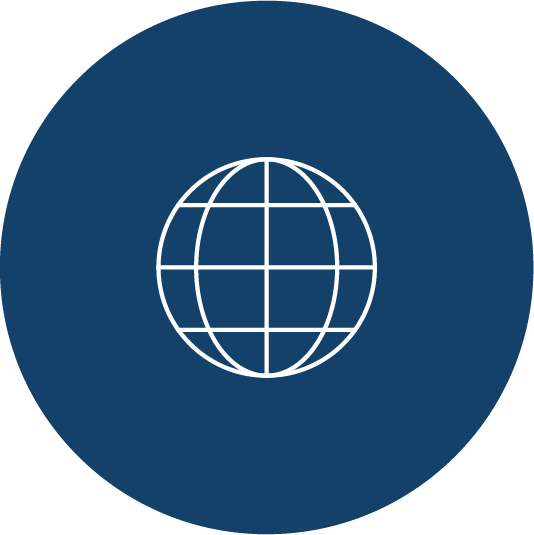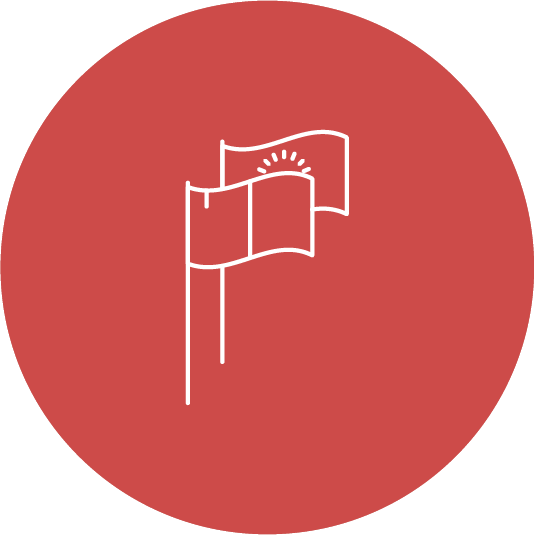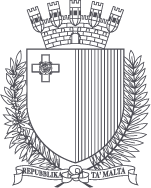Another year goes by, and yet again we gather here today at this august event, to exchange greetings of health, success, and well-being for one another.
Allow me to share with you a short moment of soul-searching. As I was going through my speeches of these past twelve months, I could not help but notice words and phrases that recurred throughout: dialogue, bridge-building, commitment to peace, multilateral cooperation, and engagement.
As we take stock of our achievements of this past year, at the same time we look forward to the exciting opportunities and onerous challenges in the months ahead.
An Active Global Participation
At the international level, last year Malta registered notable achievements in the field of international development. During the High-Level Political Forum for Sustainable Development held in New York in July 2018, I delivered our first-ever Voluntary National Review on the progress achieved by Malta in the implementation of the Sustainable Development Goals which the 2015 Summit Towards the 2030 Agenda had laid down with the intent of leaving no-one behind.
Together with local NGDOs, we supported SDG-oriented projects in third countries. Academic scholarships and capacity-building training programmes to individuals and officers from The Gambia, Ghana, Nigeria, Tunisia, and Palestine were increased and carried out successfully. We also launched an implementation plan for Malta’s Official Development Assistance Policy.
2018 marked the 30th anniversary of Malta’s initiative within the UN to protect climate for present and future generations of mankind: a global issue of concern. We welcomed the agreement reached at COP24 in Poland: certainly, a step in the right direction towards the creation of low-emission, climate-resilient economies.
Work on the external aspect of migration was another major task my Ministry undertook as part of the national commitment to address this global phenomenon. We have been active in following up on the Valletta Joint Action Plan. My country also participated in the intergovernmental conference held in Marrakech to adopt the UN-led Global Compact for Safe, Orderly and Regular Migration, which was later endorsed by the UN General Assembly in New York. We are confident that a global approach, to further assist us in managing migration effectively, is an important step in the right direction. The Global Compact confirms the sovereign right of States to determine their migration policies in conformity with international law and does not create new legal obligations for States. Furthermore, my country has been, and will continue to be, ever vigilant on the migration issue, fully cognisant of our obligations under international law, which we observe, as well as humanitarian needs.
Meanwhile, in the margins of the 73rd session of the United Nations General Assembly (UNGA), together with Tunisia, France, and the ICMPD, we organised a High-Level Event aimed at providing a platform for reflection on the opportunities of a more balanced narrative on migration and the role the media plays in shaping public attitudes, that would allow for more evidence-based migration policies to be implemented. Going forward, we hope to organise similar side-events on this highly-important thematic.
Disarmament and non-proliferation remains high on our agenda, also in light of our election to the Organisation for the Prohibition of Chemical Weapons (OPCW)’s Executive Council. I am pleased to note that the Country Programme Framework (2018-2023) signed with the International Atomic Energy Agency (IAEA) in October 2018 will result in new national projects submitted by Maltese entities.
Maritime issues require a persistently holistic approach towards resolving the challenges of ocean space. An Ocean Ambassador was specifically appointed for this purpose. Allow me, at this juncture, to thank all those countries which have supported Malta’s re-election to Category C of the International Maritime Organisation (IMO), some of you recurrently for many years. The year 2019 will usher fresh efforts for Malta’s re-election as part of our endeavours to contribute to the Organisation’s work. I am convinced that my country will continue to receive the consistent acknowledgement and results it has attained thus far.
In April 2018, I accompanied the Prime Minister to the Commonwealth Heads of Government Meeting (CHOGM) in London, where Malta concluded its term of over two years as Chair-in-Office. The Commonwealth Small States Centre of Excellence was officially launched, with numerous training and capacity-building initiatives having already been organised for participants from other Commonwealth small States, including many in the African continent.
Malta’s attainment of Observer Status within the Organisation Internationale de la Francophonie (OIF) was undoubtedly one of Malta’s top foreign policy achievements in 2018. Our successful head-start was possible thanks, inter alia, to the best practices shared by a number of countries – and here I would like to mention in particular France, Albania, and Armenia, among many others that expressed their commitment to support Malta’s candidature from the very early stages. This year will mark the initiation of a number of projects with other OIF Member and Observer States, including school exchanges, cooperation between Universities and twinning at the local government level, as well as increased parliamentary contacts, besides a heightened engagement with the OIF Heads of Missions accredited to Malta.
Malta will also continue to support the work of the Council of Europe and the OSCE, particularly in 2019 as a milestone for two important anniversaries: the 70th Anniversary of the foundation of the Council of Europe, and the 25th Anniversary of the establishment of the OSCE Mediterranean Contact Group. The latter is a direct off-shoot of Malta’s conviction that there can be no security in Europe without security in the Mediterranean, as laid down in the Mediterranean Chapter of the 1975 Helsinki Final Act – a dictum which remains universal today as it was relevant at the time.
Furthermore, while Malta remains steadfast and committed to a strong transatlantic partnership, my country remains equally and actively engaged in a policy of effective multilateralism and the rules-based international order. With a view to increasing our profile within the United Nations, Malta was elected to the Economic and Social Council (ECOSOC) in June 2018 and a Maltese judge was appointed President of the UN International Residual Mechanism for Criminal Tribunals. Malta also presented its candidature for a non-permanent seat on the UN Security Council for the term 2023-24. In this context, as I have had the opportunity to express on an individual level, we trust and count on your respective countries’ support towards this goal.
The promotion and protection of human rights is at the heart of multilateralism, a central pillar of the UN system and a core, founding value of the EU. Since its adoption in December 1948, the Universal Declaration of Human Rights has seen the dignity of millions uplifted, untold human suffering prevented, and the foundations for a most just world laid down. Malta has always cherished the fundamental values of respect for human rights, democracy, and the rule of law. In November last year, Malta presented its Universal Periodic Review, including a series of measures implemented by Government in recent years in the field of human rights. We shall continue working towards the implementation of further change, simultaneously committed together with regional and international partners, to the human rights agenda through the realisation of the sustainable development goals, globally.
Reaching Out
Contacts with Asian countries have intensified across the board. I recall with satisfaction my visits to India, Japan and China. Last year, we welcomed the Vice-President and the Minister of State for External Affairs of India. On all occasions, numerous and important bilateral agreements were signed in several fields including, among others, the Memorandum of Understanding with China on cooperation within the framework of the Belt and Road Initiative (BRI). I also attended the Geneva Conference on Afghanistan, commending the reforms undertaken by the Government of Afghanistan with the support of the UN.
On an EU level, following last year’s ASEM Summit in Brussels, I look forward to further bolstering our relations with Asian partners at the upcoming EU-ASEAN Foreign Ministers Meeting taking place in Brussels in the coming days.
In October, on behalf of Malta, I signed the ratification agreement of the EU-Japan Strategic Partnership Agreement (SPA). As the first ever bilateral framework agreement between the EU and Japan, the SPA greatly strengthens the overall partnership by promoting political and sectoral
cooperation and joint actions on issues of common interest—including on regional and global challenges, notably cybercrime, disaster management, energy security, climate change, and ageing populations. On the bilateral level, considering the common values shared between Malta and Japan, as well as the existing opportunities to bolster trade between the two nations, I am pleased to announce that we have decided to set the ball rolling for the opening of a Maltese embassy in Tokyo.
Our vision for Africa is that of forging a partnership. Marking another milestone in its foreign policy, preparations are well underway for Malta to open its first diplomatic representation in Sub-Saharan Africa – in Ghana – also as a bridgehead to the Economic Community of West African States (ECOWAS) countries. This month’s EU-African Union Ministerial Meeting will be key to the momentum required following the Abidjan Summit. We have also nominated a non-resident Ambassador to Ethiopia and the African Union, thus building upon our projected long-term engagement with the various countries and regions in the African continent.
With our Latin American partners, we look forward to pursuing the positive trend that is continuously being launched by the EU-CELAC framework. The first session of our Political Consultations with Brazil was convened in June of last year, while we are also pleased to note a healthy path towards political exchanges initiated with Colombia, which we hope to see coming to fruition in the months to come.
We also ratified the EU-Canada Strategic Partnership Agreement in March 2018.
A European Perspective
Europe is our political touchstone and we will pursue our active engagement and commitment towards the European project. Numerous outgoing high-level visits to other European countries took place last year, complimented by the signing of bilateral agreements. I wish to cite, by way of example, the State Visits by H.E. The President of Malta to Bulgaria and Croatia.
I also had the pleasure to welcome to Malta the Foreign Ministers of Poland, the Netherlands, and Hungary, the latter visit being marked by the setting up of a Hungarian Consulate in Valletta. Last summer, I also held talks with my Italian and French counterparts in their respective capitals. Moving on, I look forward to my upcoming meeting with my French colleague and to the upcoming consultations with the Irish Foreign Minister. I firmly believe that these exchanges of ideas, not only at the regular EU Foreign Affairs Council meetings but also on the bilateral level, are of service to our sound relations and are conducive to a better understanding of each another’s point of view.
Malta will continue upholding its commitment to the EU Enlargement process and to the Stabilisation and Association Process vis-à-vis the Western Balkans and Turkey.
The past year saw an ever-increasing exchange with Turkey, further strengthened by the recent visit to Malta of the Turkish Foreign Minister. These relations will be further reinforced through the upcoming State Visit to Ankara by H.E. the President of Malta, later this month.
Last year was marked by positive developments in the Western Balkans including, among others, the Prespa deal between Greece and the former Yugoslav Republic of Macedonia. We remain eager to consolidate our relations with the Western Balkans, as demonstrated through the bilateral visits to Bosnia and Herzegovina and the former Yugoslav Republic of Macedonia. Our engagement will intensify in the months to come with added bilateral exchanges.
Building upon the fruitful exchanges held with my counterparts from Switzerland and Liechtenstein, as well as the official visit to Switzerland by H.E. The President of Malta, excellent relations with the EFTA countries will remain high on our foreign policy agenda.
Malta also fully supported the efforts of our Eastern Partners during a meeting of the EaP Foreign Ministers’ Meeting in October 2018, to achieve tangible reforms in their respective countries. In this context, the strengthening of the bilateral channels is as important as that of the EU level, and our engagement is expected to intensify in the coming year.
Concerning Russia, this country remains an important and strategic partner for both Malta and the EU. While continuing to address the existing challenges with Russia, it is essential for both sides to also pursue cooperation on a range of foreign-policy issues.
The coming months will surely continue to be dominated by the Brexit negotiations. We are certain that the meaningful bilateral ties that Malta and the UK have built and consolidated since we gained our Independence, will remain strong and pro-active in the years to come. The protection and safeguarding of our citizens’ rights in the UK will remain one of our topmost priorities in the event that a withdrawal agreement is confirmed and also in the case of a ‘no deal’ scenario. My Ministry has embarked on an information campaign and outreach strategy to ensure that all Maltese residents in the UK are kept updated about their status, rights, and the procedures to ensure they can continue to reside in the UK.
Malta’s Mediterranean Vocation and Engagement with the Neighbours of Neighbours
The Mediterranean remains at the essence of Malta’s external relations dossier, with the overall objective of bringing peace, stability, and sustainable growth in our region.
In this spirit, Malta has taken over the co-Presidency of the 5+5 Western Mediterranean Dialogue, together with Algeria. The next Foreign Ministers’ Meeting will take place next week in Malta, with the overarching theme being “Working Together: A Sustainable Future for the Western Mediterranean”, addressing regional matters of mutual and common interest as well as opportunities that can be tapped in terms of the role of youth, climate change, and sustainable development.
I also wish to underline our commitment to the Anna Lindh Mediterranean Foundation (ALF). We hosted the first ALF Young Mediterranean Voices Partners last May and look forward to consolidating our relationship with the Foundation. Malta will likewise continue in its unequivocal support to the Union for the Mediterranean (UfM), in follow-up to the official visit to Malta by the UfM Secretary General last November. Within this regional scenario, we are furthermore committed to the Sommet des Deux Rives taking place in Marseille in June 2019 upon the initiative of France.
The situation in Libya remains top priority on our agenda. The recent attacks on the Libyan Foreign Ministry have yet again demonstrated that Libya needs our collective attention. Follow-up is paramount on the Paris Summit and the Palermo Conference to ensure that all necessary conditions are in place prior to the holding of fair and all-inclusive elections by spring 2019. I wish to reaffirm Malta’s support to the UN Special Representative and to this goal, hoping that this year will bring much-needed stability and peace.
We proactively continue engaging with our North African friends. Last month, the 5th Session of the Malta-Algeria Joint Commission resulted in the signing of the Agreed Minutes, covering several sectors, inter alia health, education, heritage management, and the environment. This year presents us with additional future-oriented opportunities, including the State Visit to Malta by the President of Tunisia and the Malta-Tunisia Joint Commission, taking place next month. I also intend paying an official visit to Egypt, while engaging further with Morocco and Mauritania.
In less than a year, I also paid two official visits to Israel and Palestine, and H.E. The President of Malta will also be paying an official visit later this month. We welcomed high-level dignitaries to Malta, namely the Palestinian Foreign Minister and the Israeli Deputy Minister in the Prime Minister’s Office. True to our long-standing advocacy for a two-State solution, on all occasions I reiterated that Malta stands ready, if both sides so wish, to support any initiative that aims to breathe new life, in concrete and tangible terms, into the peace process.
We continue to underline the importance of a dynamic relationship between the EU and the Arab World. Malta proudly hosts the European Commission – League of Arab States Liaison Office (ECLASLO), which exemplifies not only the relationship between the two organisations but also the promulgation of inter-regional outreach. In this context, we look forward to the EU-LAS Ministerial Meeting and Summit taking place next month, aimed to further enhance collaboration and address common challenges in our adjacent regions.
The prominence of our strong relations with the Gulf region was encapsulated in the visit by H.E. the President to the UAE, on which I had the honour to accompany Her Excellency, and my visit to Kuwait in October 2018. Mindful of persisting tensions, Malta remains firm in its support to the unrelenting Kuwaiti mediation efforts to promote the integrity and cohesion of the Gulf Cooperation Council. I look forward to visiting other countries in the region.
Together with the EU, we continue upholding the importance of the Joint Comprehensive Plan of Action (JCPOA) negotiated with Iran and support all efforts to respond to the ongoing crisis in Syria. In this context, I participated at the Second Syria Conference held in Brussels in April 2018, during which Malta pledged €200,000 in humanitarian aid.
A Can-Do Culture – Malta’s Achievements for 2018
Eighteen months into assuming the remit of Trade Promotion, my Ministry continues to vigorously promote Malta’s commercial interests abroad. We joined efforts with Trade Malta, Malta Enterprise, the Malta Chamber of Commerce, as well as other Ministries and entities to enhance business and trade opportunities. This was also made possible through the active participation of the business community and entities on official visits. Additionally, business fora were held with countries from Europe, Asia, Africa, the Middle East, Latin America, and the Gulf.
To further facilitate business exchanges, we are actively pursuing the conclusion of several bilateral Avoidance of Double Taxation Agreements. Malta also ratified the OECD BEPS Multilateral Instrument1, underlining its active role in the development and implementation of international standards in taxation, good governance, and our determination to effectively fight all types of tax systems abuse. This is a great achievement for Malta, which has consistently marched, for decades, to reach the reputation for integrity, transparency, and good governance in financial services that it enjoys today.
Speaking of achievements, I cannot but outline, in as few words as possible, Malta’s highly-significant accomplishment in turning itself into a multi-cultural cosmopolitan society. This has been achieved with the hand of many elements – some of them among you – who see a splendid future in the target of a small but visionary country which aspires to be an into Multilateral Convention to Implement Tax Treaty Related Measures to Prevent Base Erosion and Profit Shifting
all-inclusive, intercultural platform, embracing wholeheartedly all those who, in good faith, wish to contribute to their own, but also Malta’s own, economic growth.
It is in the same spirit that Malta embraced, and now concluded, its twelve-month stint as European Capital City of Culture – Valletta 2018 – with more than 400 events showcasing over 1,600 local and foreign artists, with a strong focus on building bridges across cultural integration and the interfaith dialogue. My Ministry is also proud of have organised Sempre Viva, a projection of the inter-generational Maltese diaspora across the UK, the USA, Tunisia, and Canada, underlining the benefit of cross-fertilisation in the sending and receiving communities.
This theme was recurrent in 2019, also through the community outreach visits over the past year by H.E. The President, by the Honourable Prime Minister, and in my capacity as Foreign Minister, to Australia, Canada, the United Kingdom, France, and the United States of America, and wherever we happen to have elements of the Maltese diaspora, not least in India, in China, in various countries around Europe, as well as in the United Arab Emirates.
Allow me to conclude by expressing my deep appreciation for your incessant endeavours to enhance our collaboration and relations. I look forward to continuing to work with you ever more closely to build upon our shared accomplishments.
Thank you.
I now invite you to raise your glasses in a toast to happiness, prosperity, and good health for the coming year.






